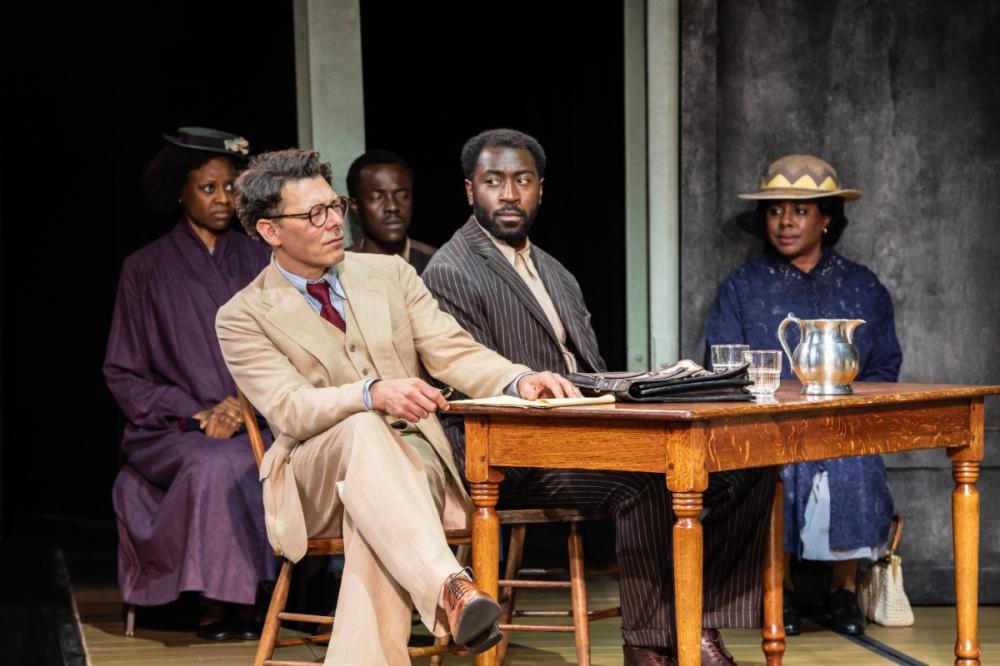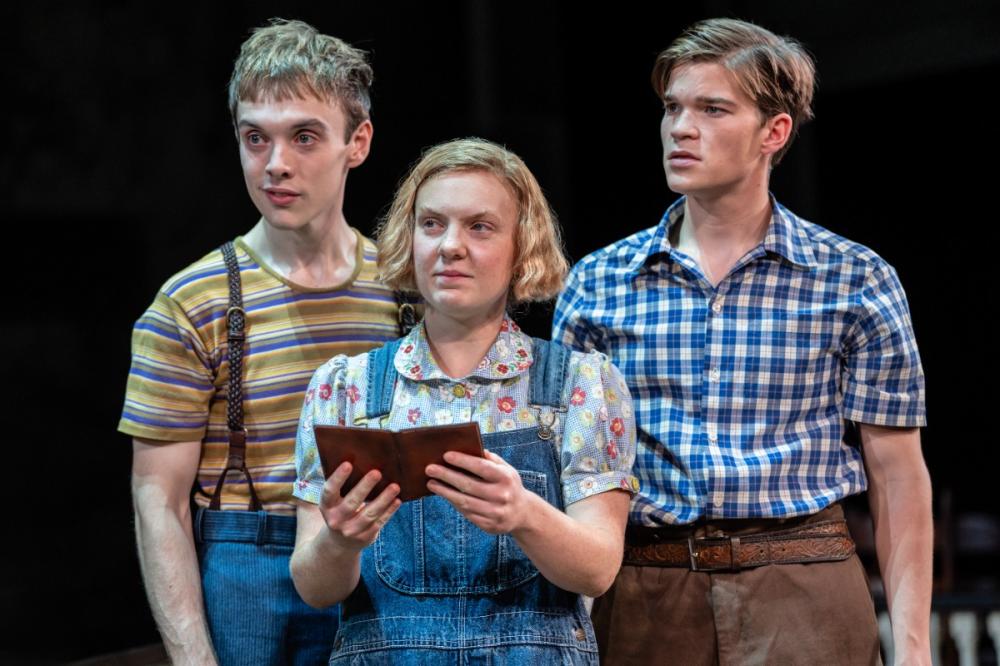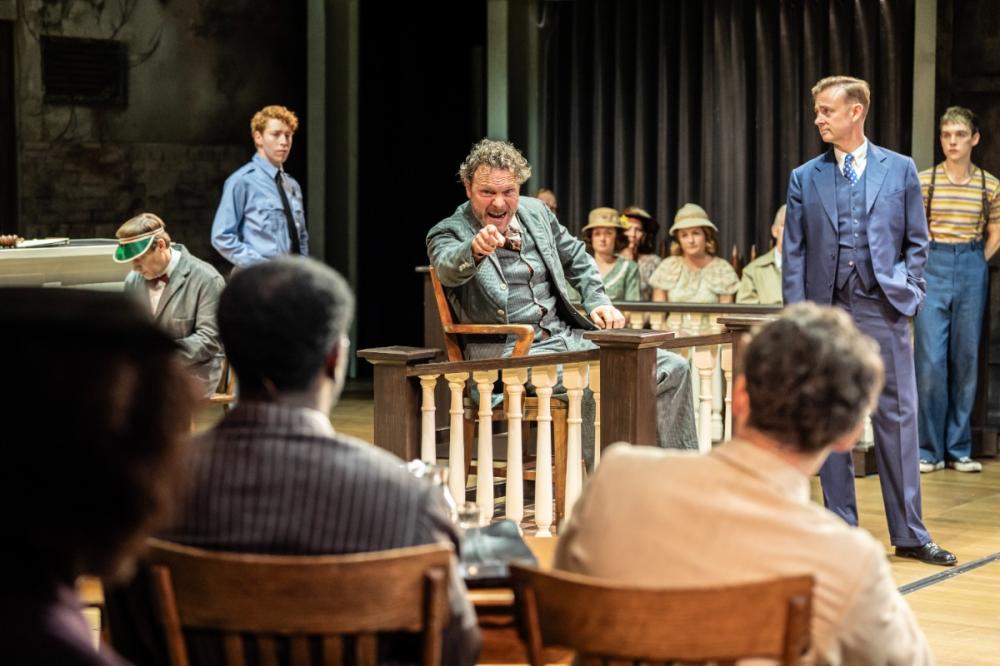

John Kitching, Writer
To Kill a Mockingbird As Relevant Today As It Ever Was

Richard Coyle (Atticus Finch) Aaron Shosanya (Tom Robinson) and Cast. Photo by Johan Persson
Set in small town Maycomb, we follow the allegation of rape of a white girl by Tom Robinson (Aaron Shosanya) and the subsequent trial where white lawyer, Atticus Finch (Richard Coyle) defends Tom in front of an all-white jury, putting both himself and his family in danger from some of the townsfolk. The story is narrated and moved along by Atticus’s children, Scout (Ann Munden) and Jem (Gabriel Scott) and their newfound friend Dill (Dylan Malyn). The children have Atticus’s tolerance and carry none of the prejudices of their neighbours.
What Sorkin has added to this production is building up the part of Finch’s housekeeper, Calpurnia (Andrea Davy) a black woman who would be expected to be subservient but who talks to Atticus as more of an equal and adds a black woman’s perspective to the events and the expectation that Atticus expects gratitude for doing what is so clearly the right thing.
Director Bartlett Sher transposes Sorkin’s adaptation to the stage with seeming effortless ease, the whole cast work as a well-honed team moving the truly impressive set designed by Miriam Buether which moves us seamlessly from courtroom to the Finch’s porch the jail house and outside the house of Boo Radley (Harry Attwell) the mysterious recluse.

Dylan Malyn (Dill), Ann Munden (Scout), and Gabriel Scott (Jem). Photo by Johan Persson
This production proves Leeds Playhouse to be a leader in challenging theatrical presentations. Ones that challenge and provoke the audience, asking them to make choices in their own lives. The story is as relevant today as it was 60 years ago and with Sorkin’s new insights we are left wondering if things have changed fundamentally over that time or indeed since the end of the American Civil War?

Oscar Pearce (Bob Ewell) and Cast. Photo by Johan Persson
Tour dates click here